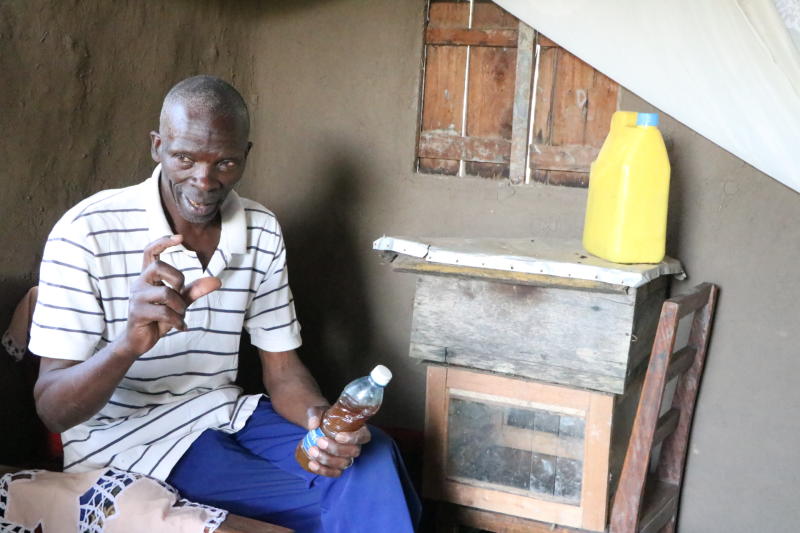×
The Standard e-Paper
Home To Bold Columnists

Pastor John Murimi showing his beehives in his house at Ivakale village in Shinyalu in Kakamega County on January 13, 2022. [Benjamin Sakwa, Standard]
A buzzing sound welcomes you to the home of John Murimi at Ivakale village in Shinyalu, Kakamega County.